These days, it seems as if we’re all living through a critical historical moment every 5 minutes. Having to spend so much time cooped up in your house isn’t easy. Between helping the kids with school, working remotely, cleaning the house, and making dinner, it can start to feel like you have no time for yourself. Although most of us love our families dearly, everyone needs a break. In such stressful times, it can help to dedicate part of the day to yourself. One of the best times to do this is likely during your night routine. If you do have kids, you can put them to bed before you gear up for relaxation.
Skincare
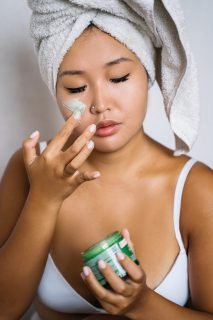
Photo by Anna Tarazevich from Pexels
What better way to begin your night routine than skincare? The most important part of any skincare routine is removing your makeup. Most of us know that sleeping in makeup is a cardinal sin. Of course, knowing this doesn’t always mean we do what we’re supposed to. Speaking to Byrdie, Anna Guanche MD, recommended starting with a gentle makeup remover such as micellar water. If you aren’t a fan of the ‘French girl’ favorite, you could go for a water or oil-based make-up remover instead. Once the bulk of your makeup is removed, it’s time to move on to cleansing. Carl Thornfeldt, MD recommends a gentle cleanser for everyone regardless of skin type. The next step is a toner which will aid in balancing the skin’s pH and moisture levels.
This is especially useful for people who struggle with oily skin. Then you move on to serums or prescription products that are tailored specifically to your skin type. This could be a retinoid, lightening serum, or even a spot treatment. Once the serums or creams have soaked in, it’s time to move on to eye cream. While many people think that eye creams are a bit of a sham, they actually can be great for preventative treatment.
The skin around the eyes is thin and more prone to developing wrinkles. Ideally, your eye cream should include peptides because they boost hydration and aid in firming and smoothing the skin. The final step is moisturizer. By the time you have finished applying your eye cream, the rest of your skin should be dry to the touch. This is how you know it’s time to apply moisturizer. For your moisturizer, you want something “hydrating which won’t block your pores”. Anything which contains hyaluronic acid is a good idea as it will help “your skin retain moisture”.
Essential Oils
Essential oils are great. They’re inexpensive, natural, and simple to use. The benefits of using essential oils are huge. They can reduce stress and even help
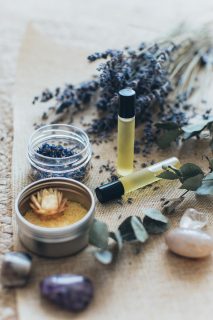
Photo by Elly Fairytale from Pexels
you get to sleep.
Lavender: One of the most popular essential oils and most commonly used for sleep and relaxation. Not only can lavender help you to fall asleep faster but it can also improve the quality of your sleep. The Good Trade recommends rubbing 2-3 drops into your pillow or directly onto your feet, temples, and wrists.
Another option is to create a bed spray “2 cups distilled water, 1 tbsp witch hazel, and 10-20 drops of lavender. Mist lightly over your sheets and pillow before going to bed”.
Ylang Ylang: It’s an essential oil that comes from a tree that is native to Asian and South Pacific Island rainforests. It’s best known for its sedative properties and can either be added to a bath or mixed with coconut oil and rubbed into the shoulders before bed.
Marjoram: It’s best known for its stress-relieving properties and is commonly used as a sleep aid. It can be applied topically to the neck or back or added to a diffuser before bed. You can also add a few drops to the lavender bed spray mentioned above.
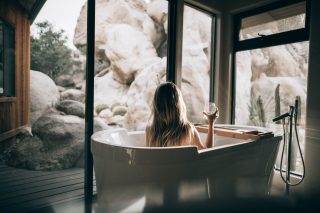
Photo by Roberto Nickson on Unsplash
Bath
A bath before bed is a great relaxation tool. In fact, studies have found that bathing as part of your night routine can increase sleep quality. It is also great for soothing sore muscles and signaling to your body that it’s time to start readying for sleep. Even bathing for as little as ten minutes was found to greatly improve sleep patterns. Your bath water should be about 104 to 109 °F (40 to 43°C).
Essentially, bathing before bed works because the hot water actually changes the core body temperature. Around bedtime, the body drops in temperature. Body temperature reaches its lowest point during deep sleep. Though it may seem like taking a hot bath before bed makes no sense, it actually aids the body in regulating temperature. In bathwater of such a high temperature, the body temperature goes up.
Once the body temperature reaches 38 °C, it has to come down. This imitates the natural decrease in body temperature before sleep. Blood is then circulated to the extremities and the core temperature falls. This reduction in core temperature signals to the body that it’s time to start producing melatonin.
Meditation and Sleep
With such full-on days, our minds can struggle to relax. It’s vital that you relax your mind before trying to get some much-needed rest. Between 30 and
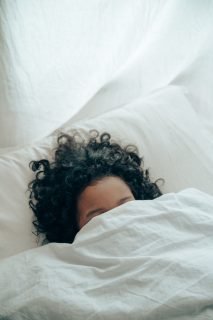
Photo by Ketut Subiyanto from Pexels
50% of adults worldwide regularly struggle to fall asleep. This difficulty in getting to sleep is most commonly linked to stress. But there’s a problem because this can turn into a vicious cycle. High stress levels can make sleeping difficult but not getting enough rest can also cause stress. It’s vital to address at least one of the issues as this will usually lead to improvements in the other.
If you struggle to get your brain to ‘turn off’, meditation might be worth a try. Essentially, mediation is a relaxation technique that is used to quiet the mind and body. Meditation addresses the stress reaction by improving the relaxation response. In the longer term, mediation can also aid in controlling the autonomic nervous system. Good control over this aspect of your nervous system can reduce how easily you are woken up by external factors.
Meditation can also increase melatonin and serotonin, reduce heart rate, and decrease blood pressure. It also activates the part of the brain which controls sleep. All of these changes are present in the beginning phases of sleep. Essentially, mediation speeds up the process by initiating these changes before you are even asleep.
References:
https://www.sleepfoundation.org/insomnia/stress-and-insomnia
https://www.healthline.com/health/meditation-for-sleep
https://www.byrdie.com/night-skincare-routine
https://www.thegoodtrade.com/features/essential-oils-for-sleep


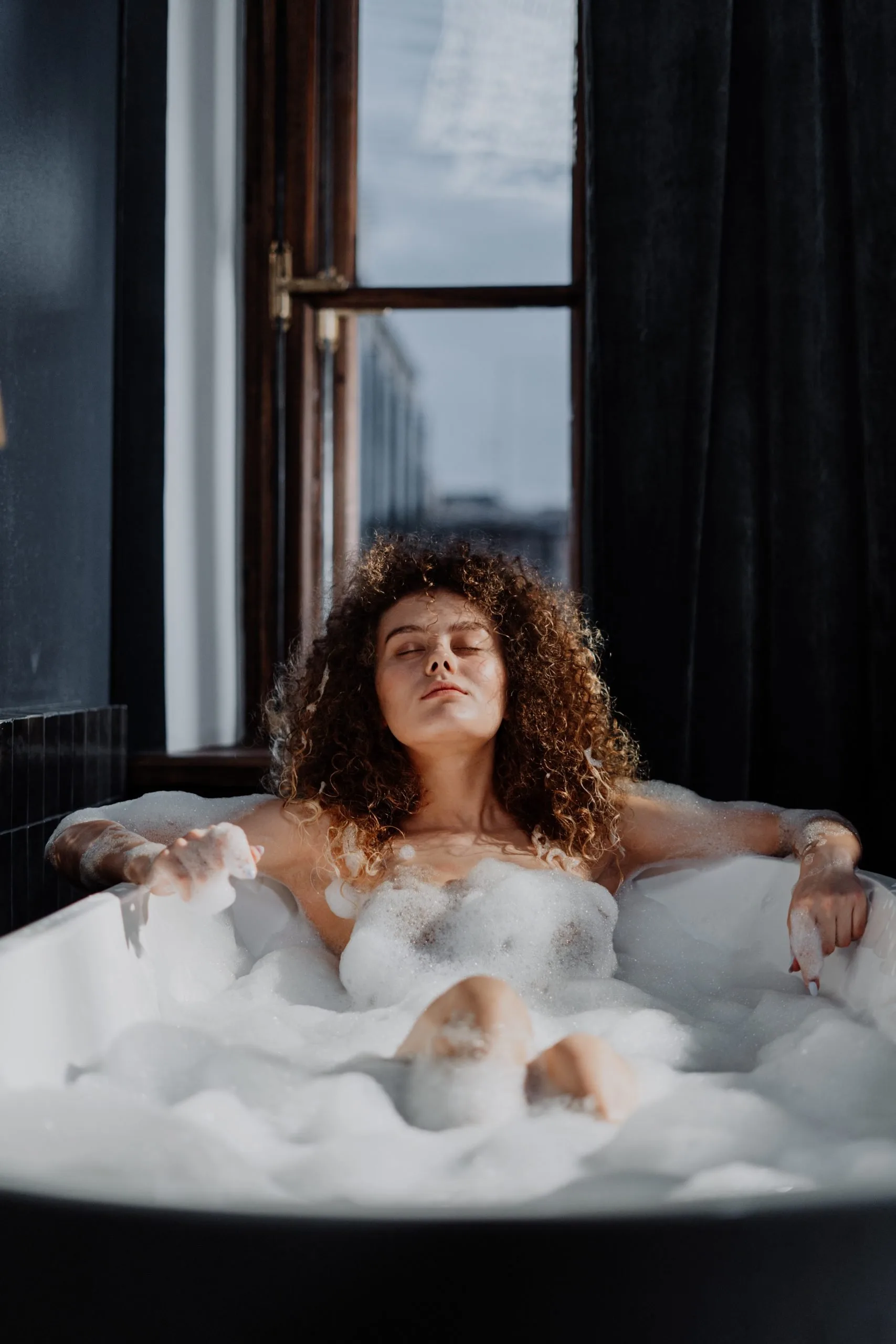
![women [longevity live]](https://longevitylive.com/wp-content/uploads/2020/01/photo-of-women-walking-down-the-street-1116984-100x100.jpg)










